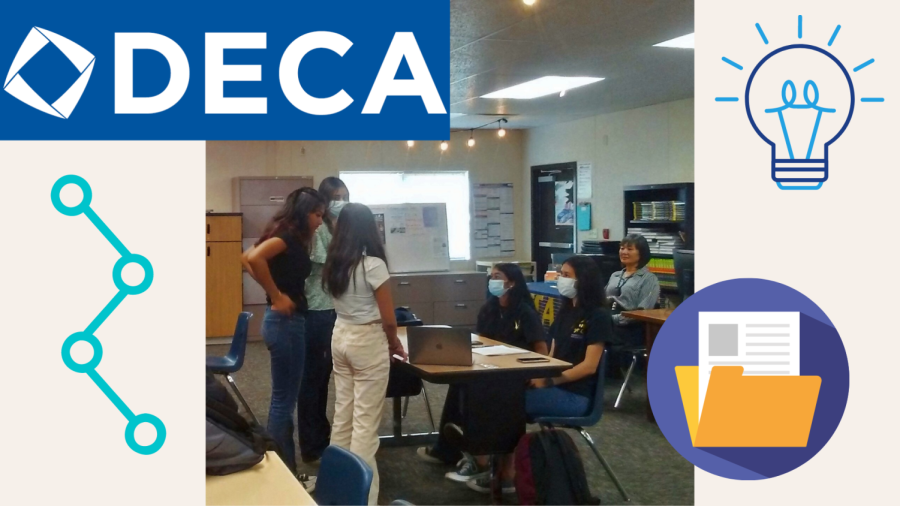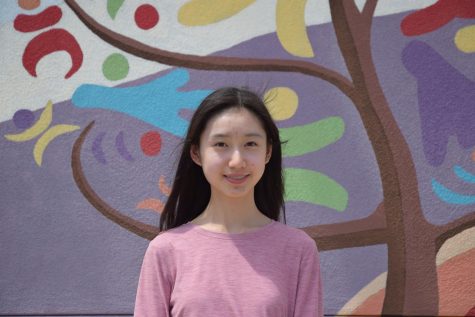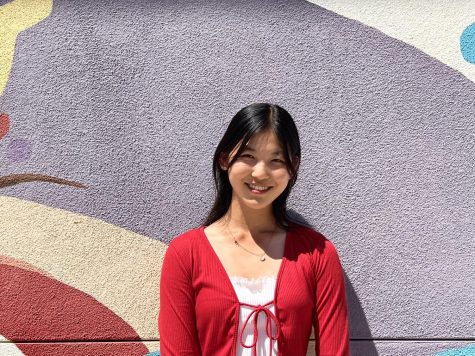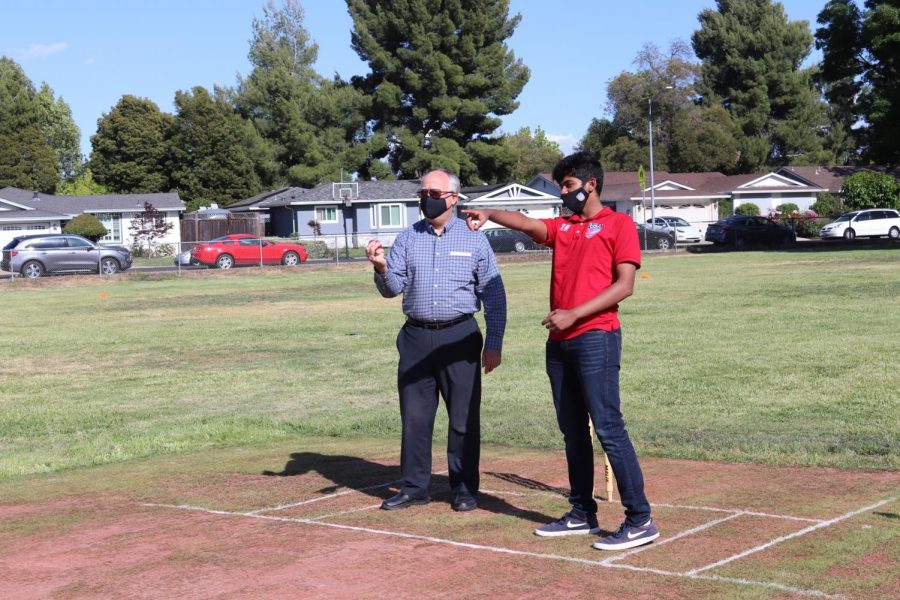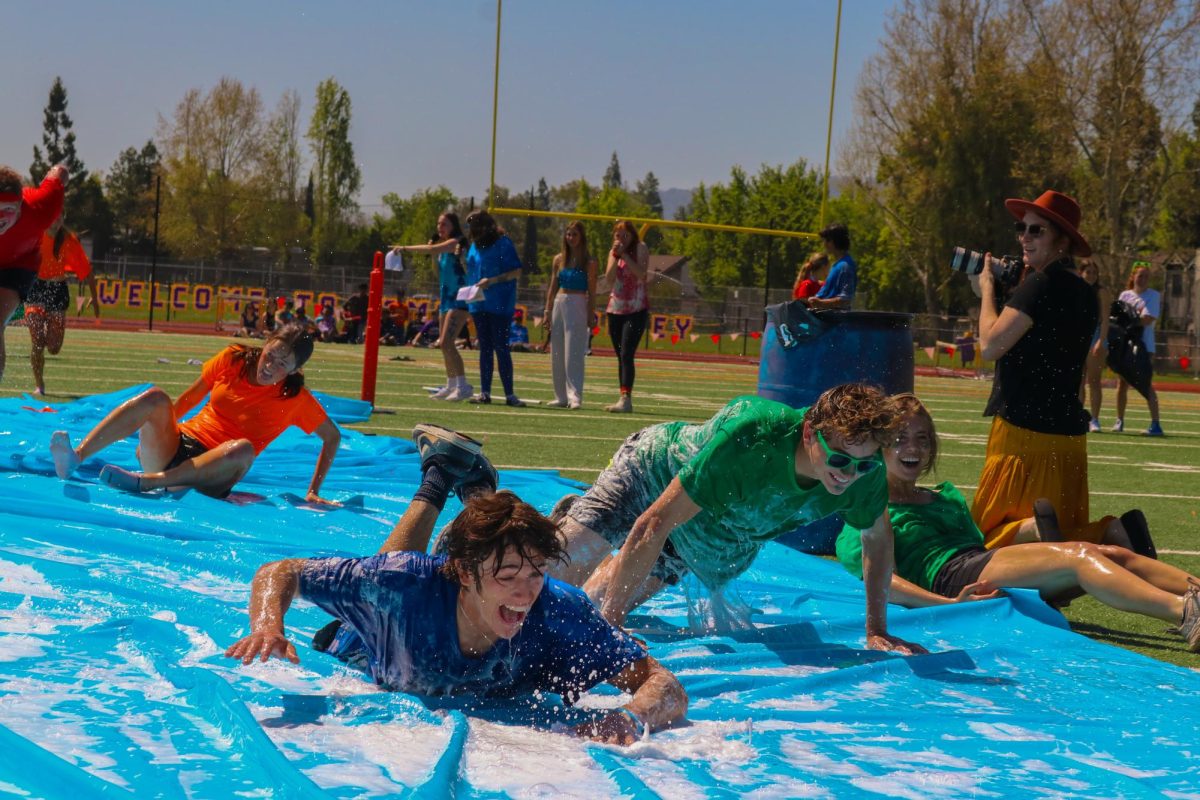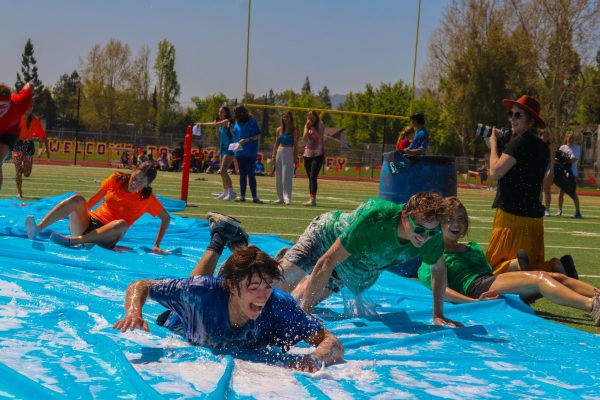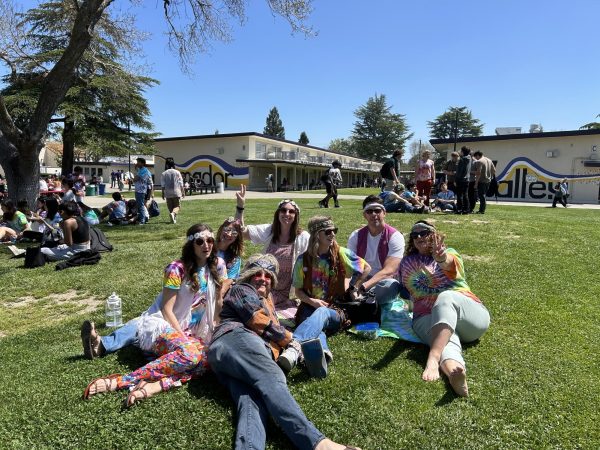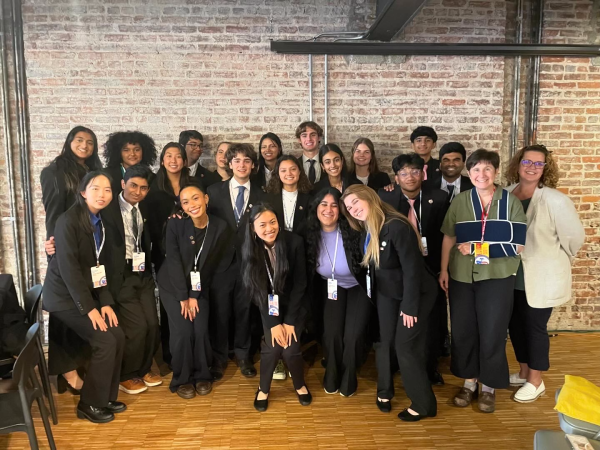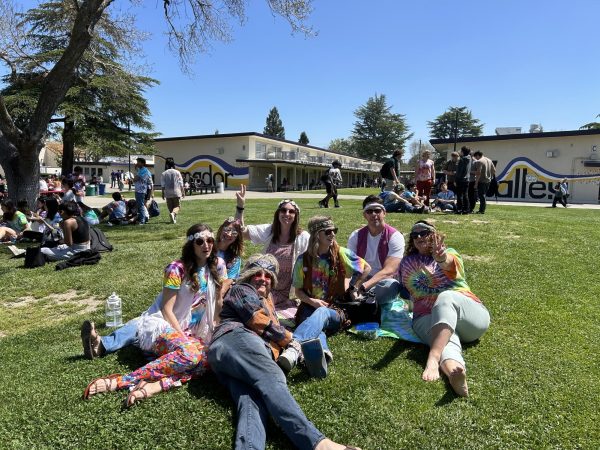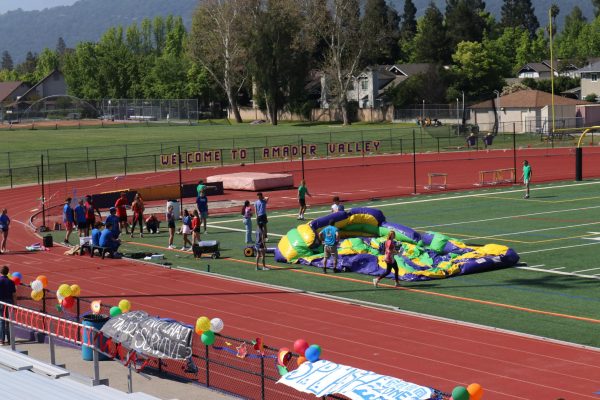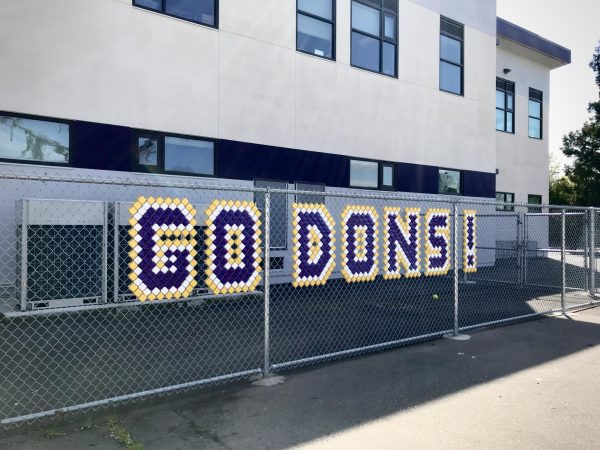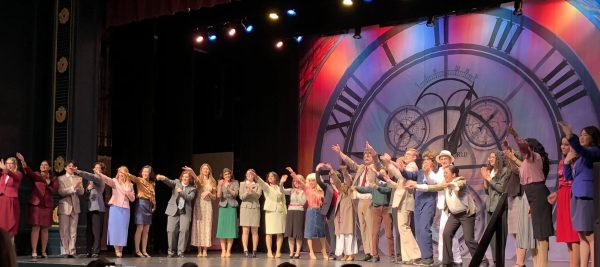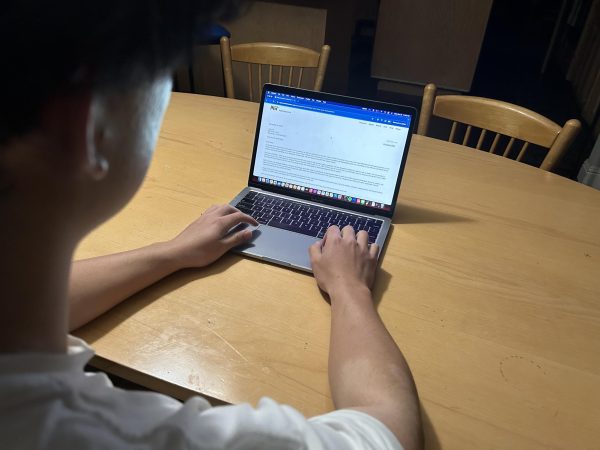DECA and Business Academy students compete in mock Shark Tank contest
DECA members presented their proposals before each other on campus and exchanged advice.
March 31, 2022
Business students dove into the “shark tank” last Thursday, March 24, to pitch their fictional entrepreneurship ideas to judges. The event was based on the long-running TV show where guest entrepreneurs seek real investments from venture capitalists like Mark Cuban and Lori Greiner.
“I was really impressed with what people were able to come up with. They were things I probably couldn’t have come up with myself,” said event co-organizer and DECA member Krisha Rathod (‘23).“There were products where we thought, if we were real investors, we would invest in this product.”
The theme interested participants like Leo Shao (‘24), who watched many seasons of Shark Tank this year. There, found inspiration for not only the product he presented at another DECA competition, but also a future business strategy.
“I really look up to Mark Cuban because he didn’t take the traditional route in business. He kind of did his own thing and followed his passion, and eventually that worked out. And that’s what I hope to do too, since I hope to go into business in the future,” said Shao.
Rathod and the judging panel, including business teacher Nancy MacDonald, evaluated teams on how innovative their products were and how well they marketed them.These potential investors then posed additional questions to groups about their projects.
“MacDonald was asking us questions we hadn’t prepared for, so this competition [required] a lot more on the spot thinking compared to other projects. Usually we do long term projects but this one we did in a week, so I think it’s great for [learning] to think on your feet,” said Anvi Kutaraya (‘23).
Rathod hoped the event helped DECA members or those planning to be members next year practice speaking skills.
“Maybe at first they’re speaking too fast or something’s unclear. We review their presentation; we could teach them how to improve [since] when they go to competitions, or when they begin to work in the real world, they’ll need to have these skills,” said Rathod. “You’re learning how to communicate with others, you’re learning how to present things to others in an effective way, which is helpful not just in DECA or in school, but in real life.
DECA’s next event on April 15 is a minicon where Amadors’ teams will take on schools across the Tri-Valley.

